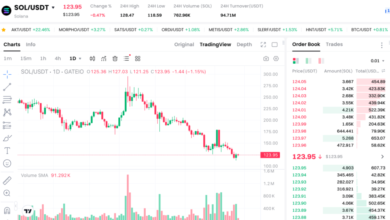9 Academic Tasks Made Easier by a Transcription Agency

Campus life nowadays is busier than ever. Between classes, research, and deadlines, teachers and students are pressed to remain productive and organized. That’s where an academic transcription agency comes in. From making note-taking easier to aiding multilingual research, transcription services have quietly become an academic necessity.
In this article, we will discuss nine specific scholarly tasks that are much simpler if you have a reliable transcription partner, and how it can enhance efficiency, accuracy, and even academic work.
1. Lecture Transcription
Students tend to fall behind during high-paced lectures. Handwritten notes may omit important details or quotes. The academic transcription agency can transform taped lectures into precise, searchable transcripts so that students have the opportunity to study in-depth topics at their own pace.
Example
At the University of California, a study group captured a series of neuroscience lectures and hired a transcription service to turn the information into easy-to-read study aids. This helped to enhance group scores and cut down on finals prep time.
2. Research Interviews
Researchers and PhD students spend hours interviewing for dissertation and study purposes. Manually transcribing these interviews is a time-consuming and exhausting process. Professional transcription guarantees nothing is left behind, allowing researchers to concentrate on analysis rather than typing.
Case Study:
A Ph.D. student at NYU writing a thesis on city housing outsourced a transcription service to transcribe 20 interviews within a week. The outcome? She was able to submit her first draft two months ahead of schedule.
3. Roundtables and Focus Groups
Focus groups are densely packed with insights, but hard to transcribe in the moment. Group discussions may feature several speakers at once, overlapping speech, and code-switching languages. An academic transcription service with multi-speaker experience brings clarity and order.
Real-world application:
Columbia Business School does roundtables on a regular basis and utilizes transcription services to convert those discussions into whitepapers and course content.
See also: Handyman Services That Can Make Your Home Improvement Projects Easier
4. Online Course Content
As e-learning grows, so does the need for accessible video content. Transcripts of webinars, recorded lectures, and tutorials help students with hearing impairments and make it easier to create subtitles and searchable study tools.
Why it matters:
Online platforms like Coursera and edX rely on transcription services to meet accessibility standards and expand their reach globally.
5. Multilingual Transcription & Translation
For global studies or multi-language classes, pairing transcription with translation is essential. A language translation agency with professionals can transcribe and translate academic work for a global audience, crucial for global academic collaboration.
Example:
An international seminar between Kyoto University and MIT employed a dual transcription and translation staff to provide bilingual transcripts in English and Japanese within a 48-hour turnaround time, closing the gap between language and learning.
6. Academic Recordings and Podcasts
Recordings are gaining popularity among academics, from breakdowns of faculty research to student panels. Transcribing those audio sessions makes content reusable and assists with SEO, archives, and publishing.
Pro tip:
Universities that transcribe their podcast series also reuse the content in social media posts, blogs, and newsletters, increasing their online presence.
7. Dissertation and Thesis Proofing
Many grad students dictate their ideas before converting them into formal papers. Recording ideas while walking or commuting and having them transcribed can accelerate the writing process. Transcripts also make it easier to identify and organize arguments logically.
Real-world insight:
One UCLA graduate student taped her entire draft thesis on her phone. Using a transcription service, she had a complete draft to revise in two days, a feat that would have taken two weeks by hand.
8. Conference and Guest Lecture Archiving
Guest speakers and scholarly conferences tend to be goldmines of information but never get properly documented. Transcription companies make such events usable transcripts for post-event sharing, research collections, or as future study materials.
Use case:
Harvard Kennedy School taped a public policy symposium and utilized a transcription company to create usable archives for alumni and students. The material was subsequently quoted in scholarly journals.
9. Data Organization and Content Repurposing
Transcripts facilitate the structuring of unstructured material, allowing the easy pullout of quotes, statistics, and results. Academic writers can therefore recycle content into journal articles, blog posts, or even grant proposals with minimal rewriting.
Example:
One political science professor utilized 12 interviews’ worth of transcripts to write three different journal submissions, halving his prep time.
Bonus: Choosing the Right Partner
In order to gain the most from these advantages, finding the proper academic transcription company is key. Seek out those who can provide speaker identification, time-stamping, and confidentiality, particularly for sensitive research or student information.
If multilingual content is part of your academic requirements, a language translation company staffed by professionals able to provide both precise transcription and culturally-sensitive translation may be the way to go.
Recommendation:
One of the best agencies working for universities and academic institutions across the globe is CCJK. They provide 230+ languages, more than 30,000 tested linguists, and are experts at both transcription and translation. Be it a lecture series, thesis interviews, or multilingual symposiums, their team provides professional output with quick turnaround.
Conclusion
Scholarly transcription is not merely a matter of transcribing speech to word, it’s a solution that equips students, researchers, and teachers to work on what really counts: discovery and learning. From time-saving benefits to enhanced accessibility and accuracy, the advantages are genuine and quantifiable.
So if you’re a student navigating deadlines or a professor researching your next article, collaborating with an experienced academic transcription agency may be the best academic move you can make this year.



